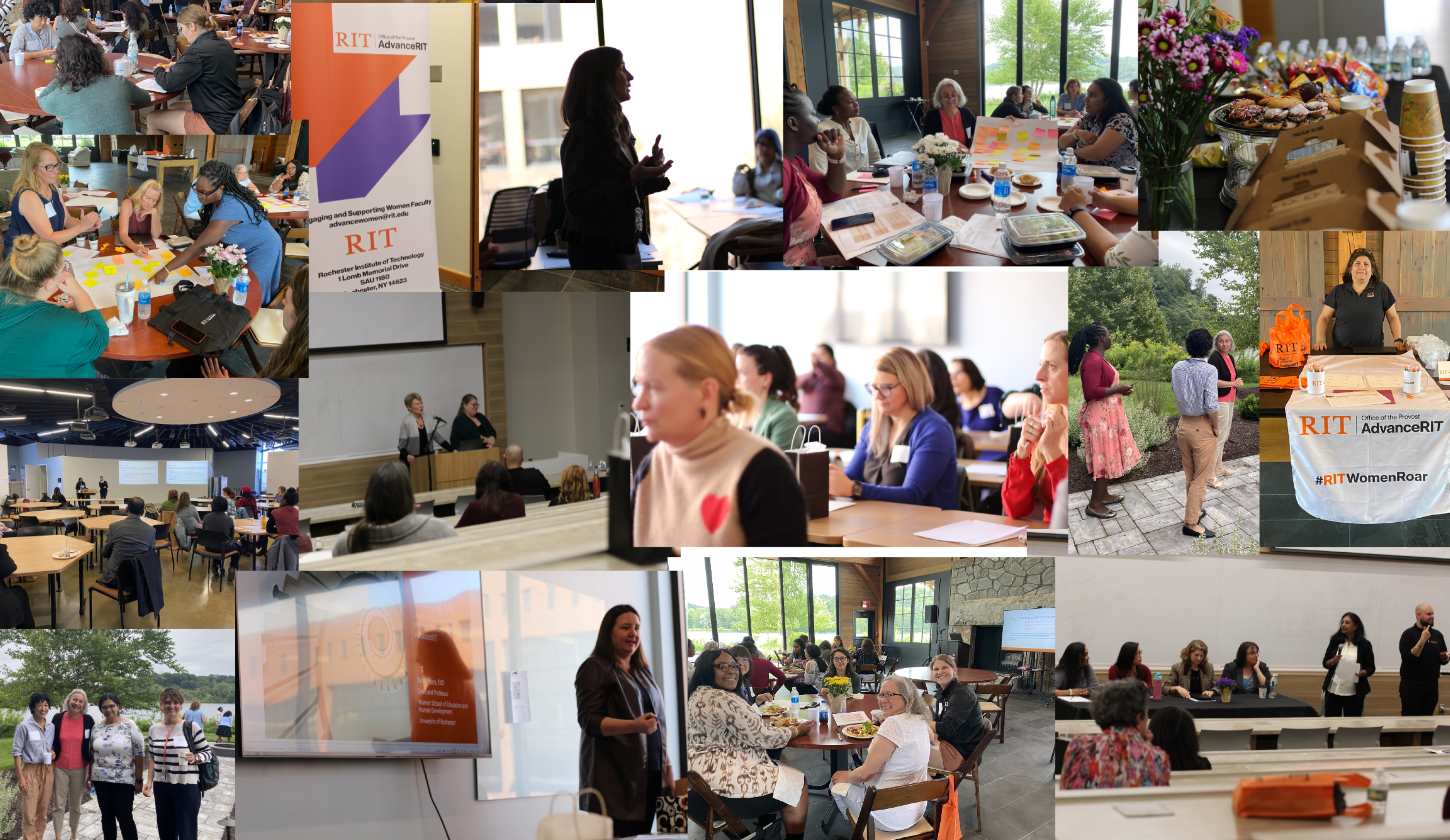Events and Workshops
The Connectivity Series creates and delivers an effective professional development workshop series for faculty and staff within RIT.
The series focuses in four areas:
- events aimed at organizational learning and development and unconscious bias
- recruitment of women faculty
- retention of women faculty
- advancement of women faculty
The objectives of the Connectivity Series include developing strategies and competencies related to:
- Career satisfaction
- Career navigation
- Work-life balance
- Leadership development
- Recognition of work
- Scholarship (research and dissemination efforts)
Connectivity Series Impact
A comprehensive evaluation of the Connectivity series was conducted in 2019. The Connectivity Series includes events organized by the AdvanceRIT team; the series also operates as an umbrella program for events hosted by Connect grantees and others.
There have been 189 Connectivity Series events from Year 2 to Year 7. The Women of Color (WoC) and Deaf and Hard of Hearing (DHH) Connectivity Series’ events comprised about 34% (64/189) of all mapped Connectivity Series events for years 2-7. These events were led by faculty in each population and content for each series was developed based on quantitative and qualitative research performed by RIT faculty.
The Connectivity Series was intentionally inclusive. While the target population was women faculty in STEM fields, all RIT faculty were typically invited; staff who work closely with students were also sometimes invited. On average, 94% reported that attending events was a valuable use of their time.
Connectivity Series events fulfilled the Bolman and Deal frames to the following extents: Human Resources goals (176 events or 93% of all events), Symbolic goals (120, 63%), Political goals (89, 47%), and Structural goals (83, 44%). Given the intent of the series, the focus on Human Resources goals is appropriate. Four focus groups were conducted in December 2017 with 24 participants to understand the impact of the Connectivity Series events. The greatest impacts were as follows. Participants indicated that the Connectivity Series events helped them to strategically advance their careers whether pursuing promotion and tenure or finding other researchers with aligned interests. In addition, the Connectivity Series offered attendees opportunities to learn from and identify with other women in academia, and expand their communities and networks. Interviewees described valuable strategies they learned through Connectivity Series events, such as building awareness about bias and being increasingly proactive at intervening against discriminatory acts.
